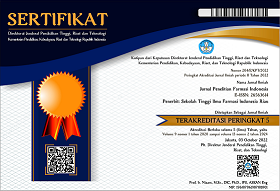Teacher's Strategy for Teaching Students' Akhlakul Karimah
Abstract
This study was motivated by the open secret that implementing the akhlakul karimah curriculum in schools has already begun. Student awareness of 'akhlakul karimah' remains low because some students engage in non-repentant acts of 'akhlak,' such as poor communication, lack of respect for teachers, and disobedience to school rules. As a result, it is natural to wonder how well Islamic religious education is implemented and whether or not teachers have the right motivation to help their students develop their 'akhlakul karimah.' To this aim, Islamic religious education teachers must encourage and instruct their students to build a strong moral compass (akhlak). This study aims to learn about teachers' approaches to eliciting gratitude and the obstacles they face. This research combines descriptive and qualitative methods that treat objects as dynamic entities and describe phenomena regardless of their existence. Researchers collect information through conversation, observation, and documentation. In addition, researchers employ data reduction, data presentation, and conclusion drawing within the framework of data analysis techniques. The results of this study suggest that there are two types of pedagogical approaches to fostering akhlakul karimah: overt (exemplary, encouragement, training, competition, habituation) and covert (teaching styles, pedagogical philosophies). (prohibition, correction, supervision, punishment). Some of the obstacles that teachers face include a lack of parental involvement, inadequate control from school administrators, and an insufficient understanding on the part of students of the significance of a good education and the environment in which they learn







.png)
.png)
.png)
.png)




